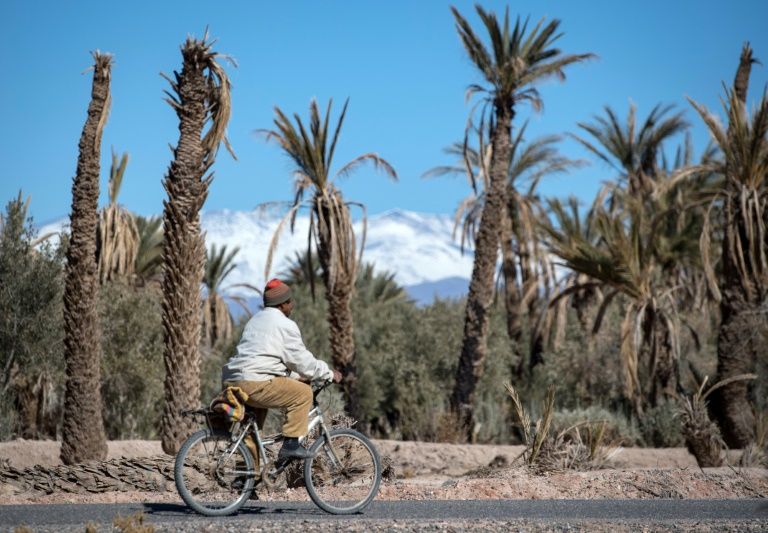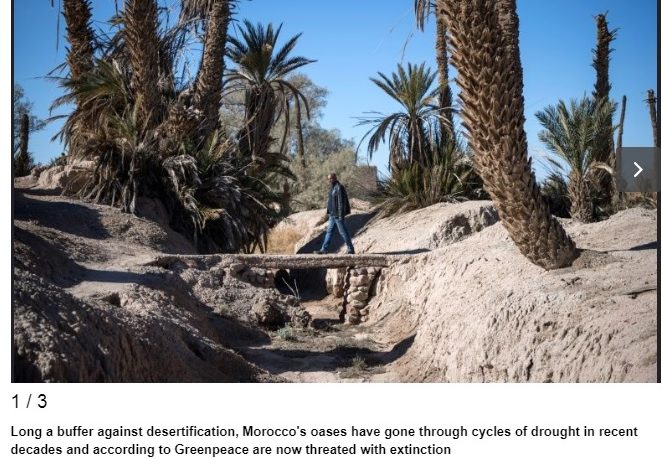AFP
Ismail Bellaouali
Dead palm trees lie on dry, yellowish earth near an abandoned adobe house in Morocco’s arid southeast, as drought threatens ancient oases.
“I grew up in this oasis and I have seen it shrink,” says 53-year-old Mohamed El Houkari, who lives in Skoura, a rural oasis area of around 40 square kilometres (15 square miles).
For centuries, Morocco’s oases have been home to human settlements, agriculture, and important architectural and cultural heritage, thanks also to trans-Saharan trade caravan routes.
Long a buffer against desertification, they have gone through cycles of drought in recent decades and are now “threatened with extinction”, Greenpeace has warned, due to the impact of high temperatures.

In most of the Skoura oasis, the ground is dry and cracked.
Until the 1980s, “pomegranate and apple trees flourished here”, says Houkari, who is also part of a local development NGO.
Now, only hardy olive trees grow in the shadow of the palms.
– Over-exploitation –
The Skoura region used to attract farmers. These days, most young people work elsewhere, though some stay for the developing tourism sector.
“I am ready to sell my land, but there is nobody to buy it. Everyone has left,” says Ahmed, a farmer.
The man in his 50s settled in Skoura with his family 25 years ago, “when the area was green and there was plenty of water. But the drought has destroyed everything”.
Electrician Abdeljalil spends most of his time between the cities of Marrakesh and Agadir.
“Our life isn’t here anymore,” the 37-year-old says.
He observes that the use of electric pumps and has contributed to the overexploitation of the groundwater.
Residents say they now need to dig down over 40 metres (130 feet) to find water, compared to seven to 10 metres (23-33 feet) in the 1980s.
Houkari laments the abandonment of traditional methods — like the “khatarat” canal irrigation system — that allowed water to be distributed “economically and rationally”.







